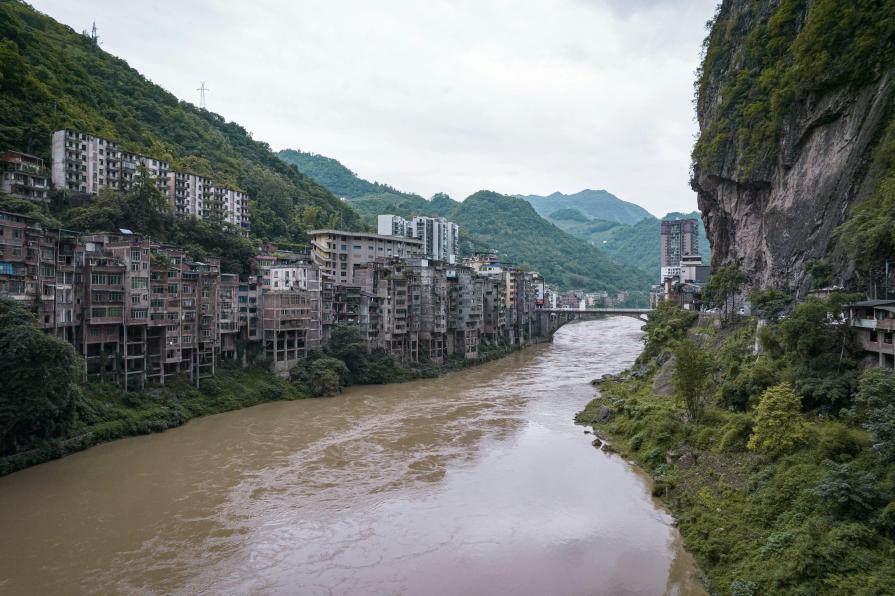From time immemorial, people settle near the water. Rivers are used instead of land roads, seas for trade, lakes for fresh water. It is difficult to surprise a city standing on the banks of a river or the sea, especially when there is Venice, Rotterdam and St. Petersburg.

In 2020, the Internet flew pictures of the incredible city of Yanjin in the Chinese province of Yunnan. A wide, full-flowing river of yellow color, running among the green hills, at the foot of which panel high-rise buildings are crowded.
- Yanjin is young, he is just over a hundred years old. The town appeared for a reason: its residents serve the railway - a two-kilometer tunnel, which passes through its territory. The city is a transport hub where three Chinese provinces converge and through which the road from China to Vietnam lies. Given the terrain, tunnels in the mountains are common for Chinese railways. Trains rush among the fluffy green hills, now and then diving into the stone underground corridors.
- In addition to working on the railway, the residents of Yanjin are employed in a salt mining enterprise in the nearby salt marshes. Translated from Chinese, the name of the city translates as"salty ford".
- Well, the Chinese would not be Chinese if they did not grow rice! Agriculture is thriving, which is favored by the climate: the absence of winter and hot summers with abundant rainfall.

The last city owes the enchanting photos that were born after heavy rains that hit the city in 2020. The river overflowed its banks so much that houses, crops and even people died. And all this despite the fact that the city was built, given the bad weather: the houses stand on high stilts, and in everyday life nothing threatens them - the river is harmless.
Last year's flood is not the only one in the history of the city, there were more terrible. After the flood of 1992, newly rebuilt areas located further from the river appeared in the city, which increased the area of Yanjin to 230 square kilometers. 40 thousand people live in the city permanently, there are schools, hospitals, state institutions and the main square with a monument to the leader in the center.
In addition to modern history, the territory of the city of Yanjin has been known since the time of the ancient extinct Bo people. On the rocks in the vicinity preserved artifacts of that era in the form of hanging coffins. The Bo people believed that the rocks were a path, a staircase leading from earth to heaven, and buried the dead in wooden hanging coffins, sometimes in the shape of a boat. This method of burial also protected corpses from looting of enemies and animals.









